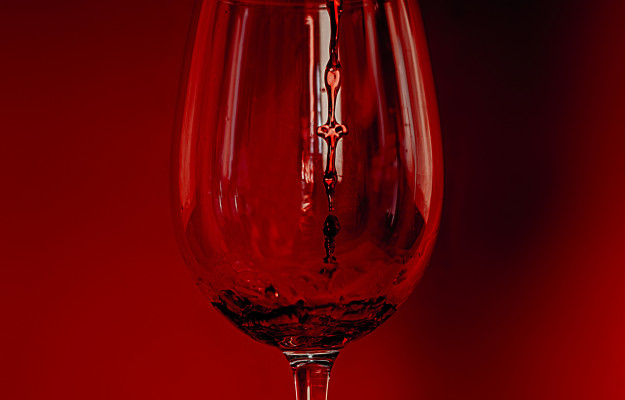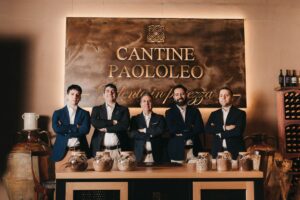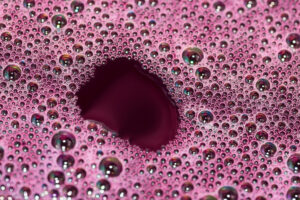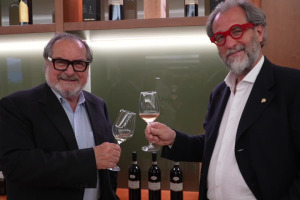As anticipated by WineNews, today the European Commission approved Europe's Beating Cancer Plan. The objective of the document is more than acceptable, that is to implement research against cancer and to reduce as much as possible the incidence of this great scourge of our time, but in the details it presents critical issues to be addressed in a more in-depth way, although some positions compared to the draft circulated until yesterday have been smoothed out a bit. The document, now, calls into question the abuse of wine and alcoholic beverages (literally harmful alcohol consumption) and no longer the consumption, but proposes, however, albeit with less clear-cut tones, measures such as the revision of the European law on taxes on alcoholic beverages, the reduction of online advertising and the stop to the “stimulation of alcohol consumption through the promotion programs of EU agricultural products”, such as the CMO Wine, and even changes in the labels returning to the issue of the list of ingredients by 2022, while there is also talk of warnings on health risks on the label but from 2023, and so on. And now come the official positions of the wine industry, at European and Italian level. Diplomatic was the response of Ceev, the European association of wine companies, which “expresses its support for Europe’s Beating Cancer Plan initiative and its overall objective, stressing that “European wine companies will continue to collaborate with European Union institutions to reduce the harmful use of alcohol”, said Jean-Marie Barillère, Ceev president, but that “the European Union wine sector has demonstrated, over the past 12 years, its strong commitment through the “Wine in Moderation” program, to promote responsible wine consumption and reduce the harms associated with excessive and irresponsible consumption”. Cancer risk, Ceev adds, cannot be assessed in isolation, but must be evaluated in the context of cultural, consumption, diet and lifestyle patterns. While it is clear that excessive consumption of alcoholic beverages leads to increased cancer risk, according to scientific evidence, drinking wine moderately, particularly as part of a Mediterranean-style diet and in combination with the practice of other healthy lifestyle factors, does not appear to increase cancer risk.
“Decision-making should be based on science and solid, relevant data, and the Ceev - a note further explains - remains committed to working with the European Commission on this as well. In this field, the WHO Europe report should be considered carefully. It must be emphasized that WHO Europe is a large region covering 53 member states - from Lisbon to Vladivostok - creating clear limits in extrapolating data, averages and models to the European Union”.
Among other initiatives, the communication of the Plan against Cancer of the EU Commission, also proposes to review the promotion program. “Promotion allows - said Ignacio Sánchez Recarte, secretary general of Ceev - wine producers to better convey the qualitative image of their products and the links with a given territory. The idea of reducing alcohol related damages by reducing alcohol consumption per se is simplistic, particularly dangerous and inconsistent with the quality policy of the European Union. Consuming wine in moderation is compatible with a healthy lifestyle. We will remain attentive to the development of the proposed actions in the field of taxation, marketing and consumer information, to ensure that the reduction of harmful use of alcohol really remains the main objective and priority”.
Decidedly sharper is the position of the Unione Italiana Vini (Uiv), which although supports the general sense of the Commission's initiative and says it is ready to collaborate. “The communication of the Action Plan of the European Commission to fight cancer is worrying. We find misleading the principle that alcohol consumption is considered harmful regardless of the quantity and type of drink. Even more unfair than this premise are the proposals in the plan that equate wine consumption with smoking, with the consequence of wiping out a sector that in Italy alone employs 1.3 million people and is the world leader in exports by volume. We are worried by the recipes proposed by the General Directorate for Health and Food Safety - underlines Paolo Castelletti, secretary general of Unione Italiana Vini (Uiv) - compulsory claims that demonize wine, on the one hand, and, on the other hand, the proposals to review taxation on alcohol and the restriction of cross-border purchases that risk creating black market and smuggling phenomena. These are not decisive measures in favor of responsible consumption, which remains the only real recipe against alcohol-related risks. The intention - also contained in the communication - to modify the policy on promotion could have a serious impact on the instruments of the Common Agricultural Policy which aim to increase the competitiveness of companies on international markets”.
According to Sandro Sartor, head of “Tavolo Vino e Salute Uiv” and president of “Wine in Moderation”, the European association which promotes the culture of conscious consumption and responsible drinking: “I am surprised to read no distinction is made between use and abuse in this text. We are completely convinced that the moderate and responsible consumption of wine, in particular within the Mediterranean diet and combined with a healthy lifestyle, is completely compatible with a healthy life and, as confirmed by many scientific pieces of evidence available and accessible to everyone, it does not seem to increase the risk of cancer”. Federvini also has its say, explaining President Sandro Boscaini: “We welcome the Commission’s Communication on the fight against cancer and consider it an important step to prepare a European action plan on the subject. We believe it is useful that within such a wide-ranging document a paragraph has been dedicated to the harmful consumption of alcohol, a phenomenon that Federvini, together with all its associates and its European associations, has always condemned and on which it intends to collaborate with the national and community authorities to contribute to combating it. Alcohol abuse should be fought with prevention and education while its moderate consumption should not be demonized as it represents an important component of our millenary traditions, based on the Mediterranean lifestyle, as well as diet, fully recognized as healthy. In the context of a Mediterranean diet, and as part of a healthy lifestyle, scientific evidence shows in fact that no increase in the risk of cancer results from moderate and conscious consumption of alcoholic beverages. We, therefore, believe that information and education are the main tools available to counter abuse and excesses, even in a context in which the consumption of alcohol is already in steady decline in Europe and Italy.
On the contrary, it is important to reject fiscal and regulatory measures which tend to demonize our culture of drinking and sociality and that, far from effectively contrasting the abuse, affect, besides the whole wine production chain, the majority of consumers who relate in a correct and responsible way to the world of wines, aperitifs, bitters, liquors and distillates”.
“We applaud the reassurances provided today by the Vice-President of the EU executive Margaritis Schinas, according to which “the European Union has no intention of banning wine, nor of labeling it as a toxic substance”, such statements, in fact, meet our express request made in a letter sent in recent days to the European Commissioner for the Economy Paolo Gentiloni and MEPs Paolo De Castro and Herbert Dorfmann”, stress, finally, in a joint note Confagricoltura, Cia-Agricoltori Italiani, Alleanza delle Cooperative Agroalimentari, Copagri, Unione Italiana Vini, Federvini, Federdoc and Assoenologi. “It is necessary to avoid the risk that rash and dogmatic decisions endanger the future of a strategic sector for our country as the wine industry, without being able to find a solution to the problems of public health”, continue the associations of the wine industry, which in the letter sent to the EU Commissioner and MEPs note that they “appreciate the great effort of the EU in planning a coordinated plan of activities that support the fight against this disease and draw the attention of governments to a common effort, important for the health of European citizens and for the future world development”.
However, in the document of the EU Commission, it is started from an erroneous assumption, that is that any consumption of alcohol is harmful, without taking into account the quantity consumed or the conditions under which the consumption takes place. It is indisputable that excessive consumption of alcohol, no matter the beverage in question, is harmful to the health, however it is not correct to consider the moderate consumption of wine, during meals, as a danger for the health. In this regard, the wine industry emphasizes the determination with which the many organizations have started working, “with an absolutely voluntary approach, on the path of self-regulation about calories and ingredients. The indication of the energy value and of the list of ingredients, on which we are in full agreement - the letter goes on to say - is now in the process of being implemented and will soon be framed at a regulatory level within the reform of the Common Agricultural Policy (CAP)”.
Finally, the organizations express their perplexity for the framework of uncertainty that is now looming in the promotion policies of agricultural products. “It is now essential an effort of transparency by the Commission to reassure the entire industry on the willingness to continue support actions to increase the competitiveness of enterprises on international markets and to increase the level of knowledge of quality wine products to PDO / PGI to consumers”. “The important verbal reassurances given by the Vice-President of the European Commission Margaritīs Schinas acknowledge that it is completely improper to assimilate the excessive consumption of spirits typical of the Nordic countries to the moderate and conscious consumption of quality products and lower alcohol content such as beer and wine that in Italy has become the emblem of a “slow” lifestyle, attentive to the psycho-physical balance that helps to feel good about oneself, to be opposed to the unregulated assumption of alcohol”, says, on his behalf Coldiretti, in the voice of President Ettore Prandini.
“The words of the Commissioner must now be translated into concrete acts that recognize the specificity of wine excluding it from the scope of the recommendations contained in the plan but to worry - Coldiretti stresses - are also the limits placed on the promotion of products that are symbols of Made in Italy including red meat and cured meats. The text provides that the Commission “will propose a mandatory indication of the list of ingredients and nutritional claims on alcoholic beverages by the end of 2022 and health warnings by the end of 2023” also reviewing the “promotion policy on alcoholic beverages” and on this must now be guaranteed the appropriate exemptions for wine and beer”.
Copyright © 2000/2025
Contatti: info@winenews.it
Seguici anche su Twitter: @WineNewsIt
Seguici anche su Facebook: @winenewsit
Questo articolo è tratto dall'archivio di WineNews - Tutti i diritti riservati - Copyright © 2000/2025

























































































































































































